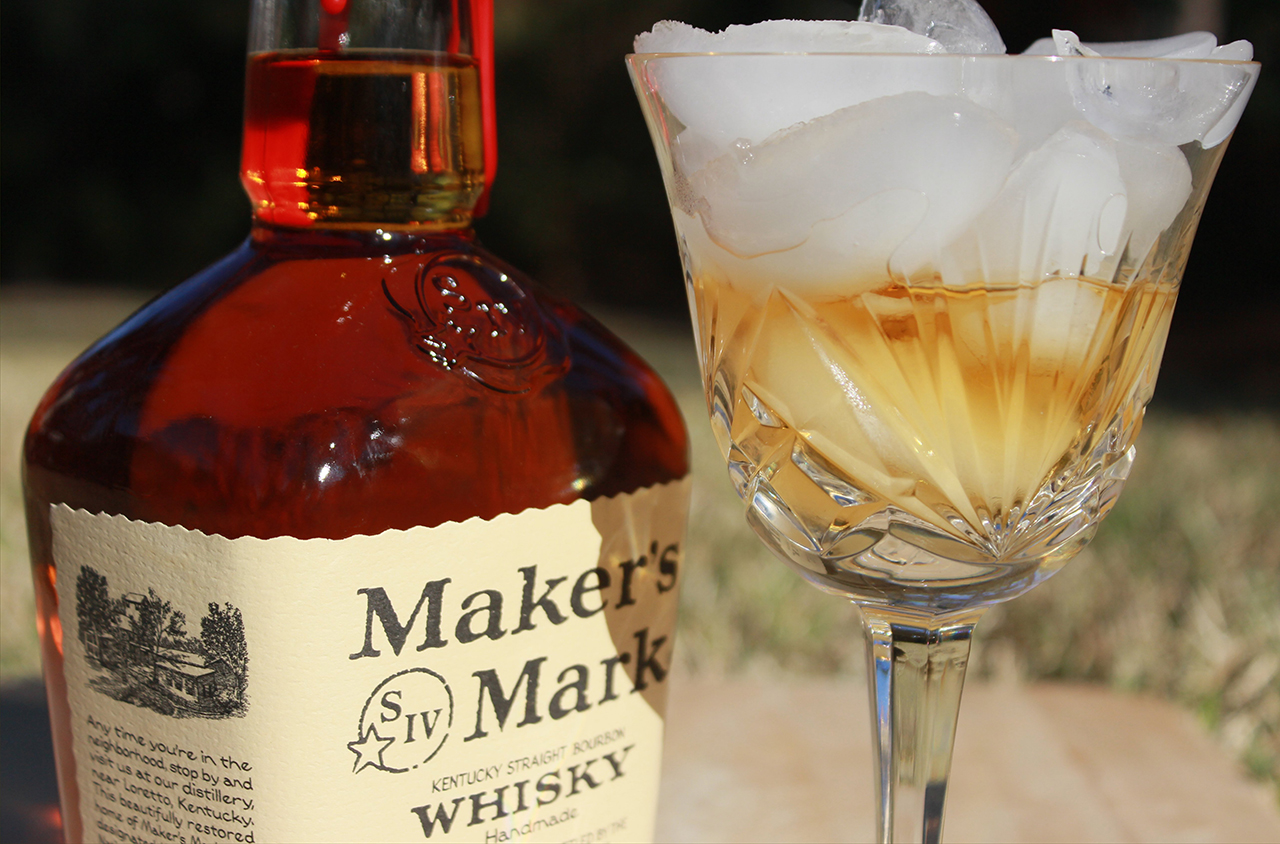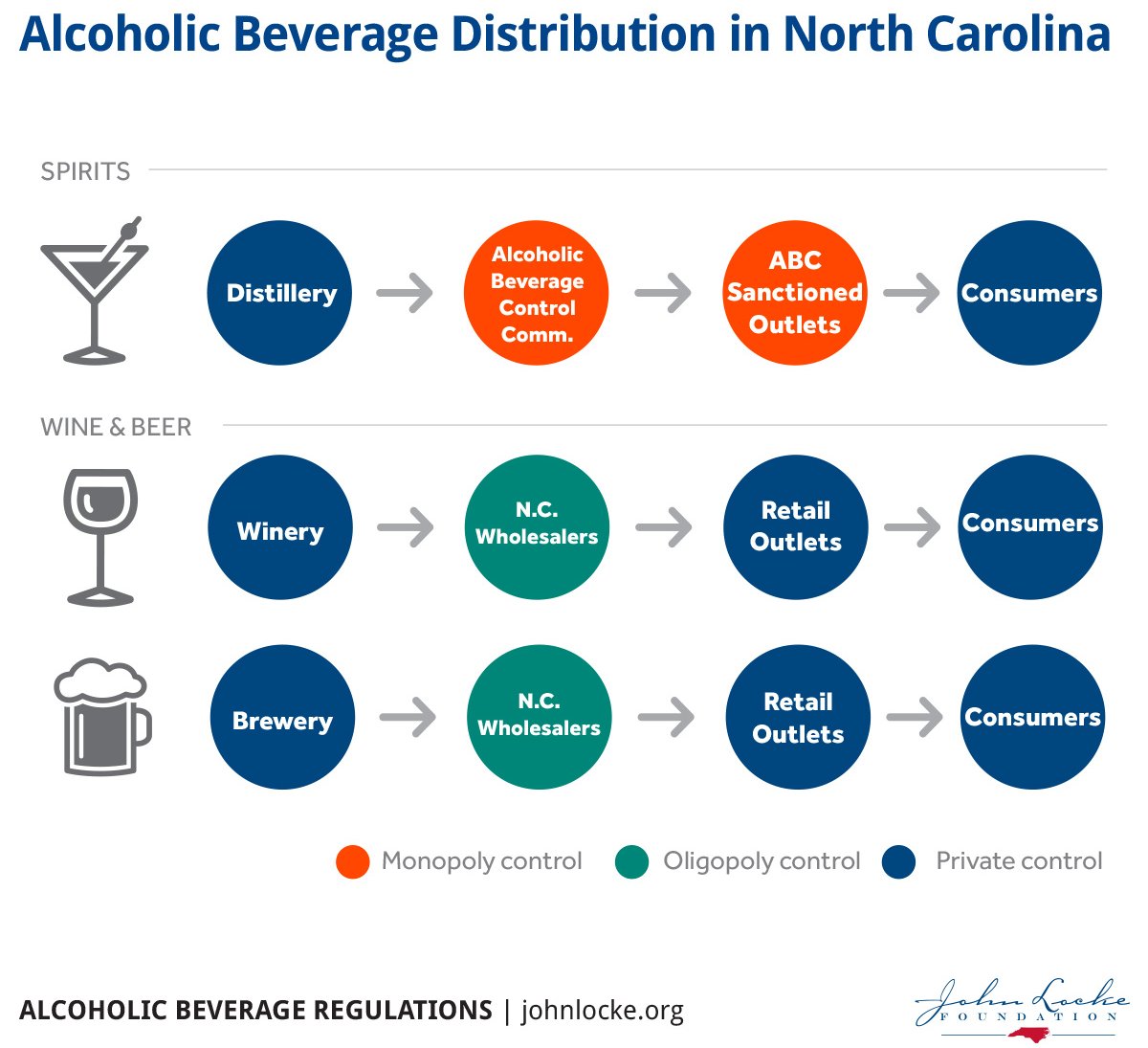Publisher's note: This post by Jon Sanders, Director of Regulatory Studies, is published here courtesy of the John Locke Foundation.
 Whiskey on ice: Above. photo by Stan Deatherage Click image to expand.
Whiskey on ice: Above. photo by Stan Deatherage Click image to expand.
When the state decides to regulate an industry, it doesn't necessarily apply the same level of regulation it uses for other regulated industries. This fact about regulation is one reason why we advocate reforming the state's occupational licensing system into one that uses the "least restrictive regulation necessary" to address a legitimate state concern in an occupation.
Just because we need to regulate something doesn't mean we should go whole hog.
It's also why people outside of government tend to distinguish between regulation (making the rules of the game) and red tape (an unnecessary tangle that makes it harder to be productive for no good reason).
The point is this: Even if there's an industry where the state has a proper role for regulating it, that doesn't mean all regulatory options are proper. As with occupational licensing and other areas, the choice about regulating isn't a toggle switch between chaotic anarchy and absolute government control.
In the John Locke Foundation's Policy Position on Red Tape and Regulatory Reform, I cite economic research looking at industry outcomes based on how loosely or tightly the federal government regulates them. The takeaway is this:
More lightly regulated industries grow much faster and produce at much greater rates than more regulated industries.
Here's an interesting example of this process at work in North Carolina history.
At the beginning of the 20th century, North Carolina was the nation's leader in wine production. North Carolina was also the nation's leader in legal distilleries (with 745 registered distilleries, 540 that were operating). These legal industries were killed off by statewide prohibition in 1908.
After Prohibition was lifted (federal and state), the North Carolina ABC system was created to keep tight control over liquor. State government controlled wholesale distribution, and local governments controlled retail sales. (Even for a control state, that's weird.)
Over time, state law allowed distilleries to return in 1979.
They didn't.
North Carolina didn't see its first new distillery until 2005. Now there are 57 local distilleries in North Carolina.
In the meantime, wine (which had been placed under the purview of the ABC system in the late 1950s) was regulated under a relatively freer system. My colleague Jon Guze's report describes many problems with the state's three-tiered distribution system, but even with its flaws, it's not nearly as restrictive as how North Carolina regulates liquor.
 Click image to expand.
Click image to expand.
So
wineries began coming back to North Carolina about when Prohibition ended, albeit very slowly at first. Faster growth was seen after reductions in state winery license fees and wine taxes were passed in 1972. By 2000, there were already 21 established local wineries. Now there are 168 local wineries in North Carolina.
Incidentally, local craft breweries went from 30 in the early 2000s to 304 now - the most in the South. They are regulated under the same system as wine.
In both cases, we see a return of industries to North Carolina, where once they thrived. But the more lightly regulated industry is coming back stronger and faster than the one with heavier interference by the state.
What does all this portend? It means North Carolina distilleries could be poised for growth if only state policies would allow it.

























